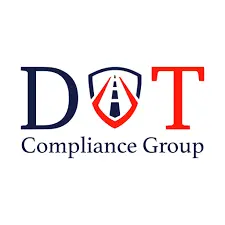Navigating transportation regulations in New York City (NYC) requires a comprehensive understanding of the Department of Transportation (DOT) guidelines. Whether you’re managing a fleet of trucks, running a small business, or simply commuting, staying compliant with DOT regulations is crucial to avoid hefty fines, legal troubles, and safety issues. In this article, we’ll break down key aspects of DOT regulations and compliance to help you stay on track in 2024 and beyond.
Understanding DOT Compliance Requirements

DOT regulations are vital for maintaining safety on the roads, especially for commercial vehicles. Compliance includes adhering to rules about driver qualifications, vehicle maintenance, and operational limits. In NYC, where traffic congestion is high, these rules help prevent accidents and ensure smooth traffic flow. Drivers must meet certain standards, including regular medical exams, training, and possessing valid commercial licenses.
- Driver Requirements: Medical certification, commercial driver’s license (CDL), ongoing training.
- Vehicle Safety: Regular maintenance, inspections, and compliance with load limits.
- Operational Limits: Hours of service (HOS) regulations, which ensure drivers aren’t fatigued, are enforced.
The Importance of Vehicle Maintenance and Inspections

Vehicle maintenance is one of the most critical components of DOT compliance. In NYC, vehicles must pass regular inspections to remain roadworthy. Poorly maintained vehicles can lead to accidents, breakdowns, and hefty fines. DOT inspections check the overall condition of commercial vehicles, focusing on braking systems, tires, and lighting equipment.
- Regular Inspections: Vehicles must undergo annual checks.
- Maintaining Safety Standards: Faulty brakes, worn tires, and malfunctioning lights are common failures.
- Penalties for Non-Compliance: Failure to pass an inspection can result in fines or the vehicle being taken off the road.
Hours of Service (HOS) Regulations for NYC Drivers
To reduce driver fatigue, DOT enforces strict Hours of Service (HOS) regulations. These rules dictate how long a driver can be on duty, drive, and the amount of rest required between shifts. In NYC, where traffic and long wait times are common, following HOS regulations is vital for safety.
- Maximum Driving Time: Drivers are limited to 11 hours of driving after 10 consecutive hours off-duty.
- Rest Breaks: A 30-minute break is required after 8 hours of driving.
- Logbooks: Drivers must maintain electronic logs to track their hours and rest periods.
Drug and Alcohol Testing Requirements

Drug and alcohol testing are essential to ensuring that drivers are in proper condition to operate a vehicle. DOT mandates random drug and alcohol testing for all CDL drivers, ensuring that individuals under the influence are not putting themselves or others in danger.
- Pre-Employment Testing: New drivers must pass a drug test before they are hired.
- Random Testing: Random drug and alcohol tests are conducted throughout the year.
- Post-Accident Testing: Testing is required if an accident results in injuries or vehicle damage.
Understanding Cargo Securement Rules

Cargo securement is critical for avoiding accidents on NYC’s busy streets. DOT requires that cargo be secured properly to prevent it from shifting during transit, which could cause rollovers or spills. Ensuring your cargo meets DOT securement standards protects your business and other drivers.
- Tie-Downs: Use of approved straps, chains, and ropes.
- Weight Limits: Overloading vehicles can lead to citations.
- Cargo Distribution: Balanced loads prevent rollovers and improve vehicle control.
Read More: Choosing the Right Box Truck for Your Business: Considerations and Options
DOT Recordkeeping and Compliance Audits

Recordkeeping is vital for passing DOT compliance audits. In NYC, trucking companies and operators must maintain accurate records for inspections, maintenance, hours of service, and driver qualifications. These records are essential in the event of a DOT audit, which can occur randomly or after an incident.
- Maintaining Logs: Drivers must record their daily activities.
- Vehicle Maintenance Records: Documenting all repairs and routine checks.
- Driver Files: Ensuring driver qualifications are up-to-date and stored properly.
The Consequences of Non-Compliance

Failing to comply with DOT regulations can result in steep penalties. In NYC, where traffic enforcement is strict, non-compliance can lead to fines, vehicle impoundment, or even business shutdowns. Companies must prioritize staying within regulatory limits to avoid such repercussions.
- Fines: Ranging from hundreds to thousands of dollars.
- Vehicle Impoundment: Non-compliant vehicles can be seized.
- Business Shutdowns: Repeat violations can lead to the closure of operations.
How to Stay Compliant with DOT Regulations in NYC
To ensure compliance with DOT regulations in NYC, businesses and drivers should adopt a proactive approach. Regular training, scheduled vehicle maintenance, and understanding the latest regulations are crucial steps. Staying informed about changes in laws and requirements is also essential to avoid legal issues.
- Training Programs: Regular workshops to keep drivers and staff updated.
- Scheduled Inspections: Set reminders for regular vehicle maintenance and inspections.
- Stay Informed: Regularly check for updates to NYC-specific DOT regulations.
Conclusion
Staying compliant with DOT regulations is essential for the safety of both drivers and other road users, particularly in NYC. With stringent laws in place, drivers and businesses must remain proactive in their approach to compliance. From vehicle maintenance to HOS regulations, following these guidelines helps avoid penalties and ensures smoother operations on NYC’s busy streets.
Frequently Asked Questions (FAQ) about DOT Regulations and Compliance
1. What are the basic DOT compliance requirements for NYC?
DOT compliance in NYC includes adhering to driver qualifications, vehicle inspections, hours of service, and drug and alcohol testing.
2. What happens if my vehicle fails a DOT inspection?
If a vehicle fails a DOT inspection, it could be taken off the road, and you may face fines. Regular maintenance is key to avoiding these issues.
3. How often do I need to perform a vehicle inspection?
Annual inspections are required for commercial vehicles, but additional checks may be necessary based on the vehicle’s use and condition.
4. What is Hours of Service (HOS) regulation?
HOS regulations dictate how long a driver can be on duty and how much rest they need between shifts. This ensures that drivers are not overworked and fatigued.
5. Do I need to maintain records for DOT audits?
Yes, keeping accurate records of inspections, maintenance, and driver qualifications is necessary for passing DOT audits.
